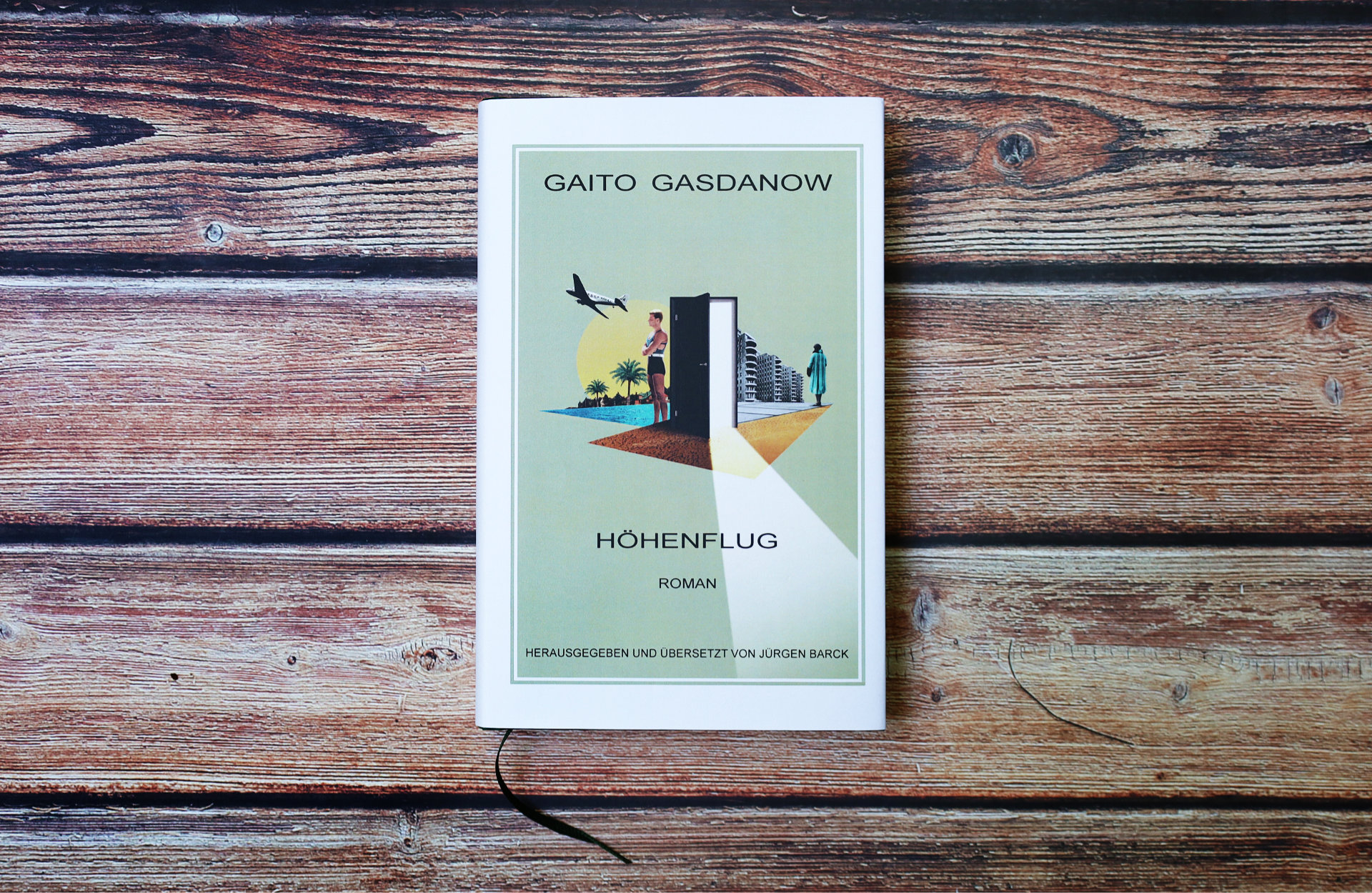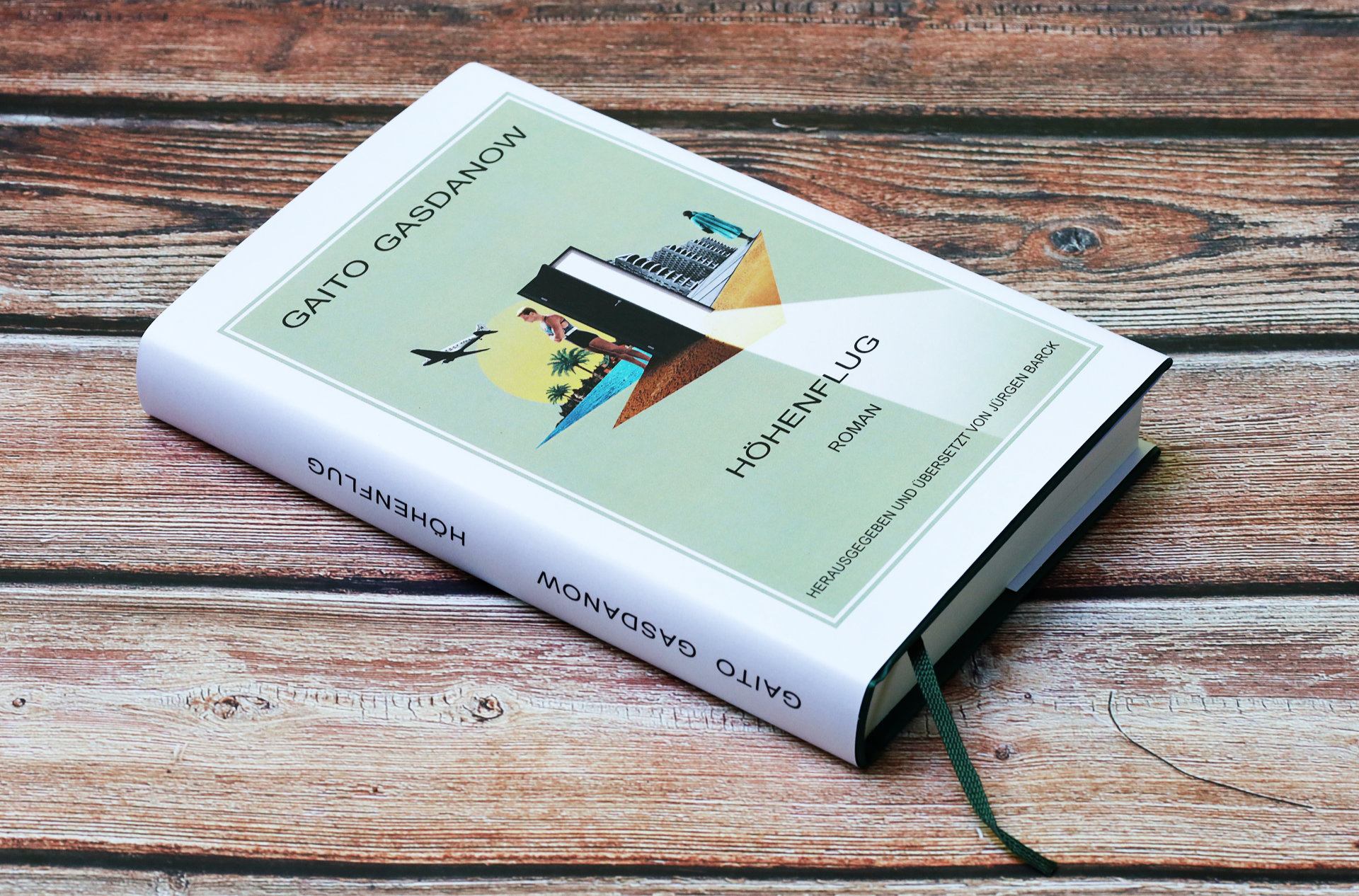The Flight • Gaito Gazdanov

Ever since I read my first book by Gaito Gazdanov ten years ago, I’ve been fascinated and enthralled by his novels and stories. His elegant, precise, and highly poetic language captivates the reader, and its almost musical cadence creates a deeply absorbing reading flow. At first, there were only a few of his novels available in translation. Thanks to the independent translator Jürgen Barck, all of his wonderful books are gradually becoming accessible to German-speaking readers. The Flight is Jürgen Barck’s newest publication, due out in early July, and it is also the first and only German translation of this almost-lost work from Gazdanov’s pen. Read here what makes the novel so special.
The Flight is about Seryozha, his restless mother Olga Alexandrovna, and her beautiful but seemingly frosty sister Liza. Sergei Sergeyevich, Seryozha’s father, is very wealthy, and so the four of them lead a financially independent life. Yet each of the four—and numerous secondary characters whom Gazdanov alternately highlights and describes—searches for a fulfilled life in their own way. In doing so, Gazdanov characterizes the individual figures and portrays their relationships to one another. Little by little, the reader learns and experiences how these very different personalities shape their lives and how differently they seek fulfillment.
Gazdanov’s books have always been marked by finely tuned, precise, yet empathetic character portraits. He manages to express subtle emotional nuances and the psychological states of his figures in a language entirely his own. That is true of this book as well. He moves from one character to the next—like a spotlight on a stage drifting from one person to another and back again. In this way, the reader is carried through the book and gets to know the characters better and better. I found this very pleasant, and it has a pull all its own. At the beginning, the descriptions are very precise and strongly reminiscent of the Realists’ style. But as the book progresses, one again senses that distinctive tone that permeates all of Gazdanov’s works. He simply finds marvelous sentences that fully unfold their effect in the flow of reading.

It was especially exciting toward the end of the book. As a reader, you sense that a situation must resolve itself here, and you’re eager to see how that will happen. The most fascinating figure for me is Sergei Sergeyevich, who strongly reminded me of Uncle Pyotr Ivanyich from A Common Story by Ivan Goncharov. He is usually mocking and often borders on cynical. Nevertheless, he’s very affable, and you can tell he is a good person. He is the most fully developed character, and you sense that Gazdanov wants to express something through him. Whereas Goncharov’s Pyotr tends to be an ironic figure, I sensed in Sergei Sergeyevich’s thinking and actions a distinct and consistent personality. That’s what I loved about the book: that you keep thinking about the protagonists after reading; that it isn’t entirely clear what Gazdanov intends to portray; and that the book remains a bit of a riddle, leaving plenty of room for discussion.
Jürgen Barck’s foreword is very interesting. There you learn that the book was intended to appear as a serial in 1939. It did, but the final installment was never published because the turmoil of the war made it impossible to continue the magazine. Only in 1992 did the complete book finally appear, after the American Slavist László Dienes discovered the last part in the archives. In 2016, the novel was translated into English, and Jürgen Barck deserves immense credit for making this wonderful book available in German for the first time in 2025. I would add how sad it is for the German-language literary world that a free and independent translator achieves such a remarkable feat—translating and publishing Gazdanov’s books at such a high publishing standard without any support. That says a great deal about the book culture in this country.

There was a second aspect of this book that fascinated me. I compared its publication date with those of his other works and was very surprised. His debut novel An Evening with Claire was published in 1929, in which Gazdanov processed his wartime experiences and his flight into exile in Paris. Night Roads (from 1939), The Buddha’s Return (1947), and The Spectre of Alexander Wolf (1948) were strongly autobiographical and consistently featured protagonists who somehow stand on the margins of society—always observers, lost in a society that is exile rather than home. Only in his late work, in novels such as Awakening (1965/66) or The Pilgrims (1954), do I see a shift in perspective toward the search for a fulfilled life. I had always assumed that this shift correlated with Gazdanov’s own path—that only in later years did he make his peace and gain a more conciliatory view of the world. Even though he was never allowed to return to Russia—despite his efforts—you can always sense in his books a longing for his true homeland. The Flight surprised me very much, as it shows that this assumption was not correct and that already at such an early point a novel took precisely this humanistic worldview as its central subject. The Flight was completed in 1939. In the end, however, all of his novels fit together into a coherent body of work, and this question is not all that decisive.

I like this edition very much, and the illustration on the cover is perfectly chosen. I also like the book’s color palette, with its shades of green and the matching ribbon marker. The imprint of Gazdanov’s name on the front board is a detail I really appreciate in all the books translated by Jürgen Barck. The typography, too, has been chosen with care. Visually, it’s highly appealing, and compared with many publishers’ editions, this book stands out very positively in this respect as well—it’s top-tier.
A second lovely detail is that I had the honor of writing the afterword to this book. That made me very happy, and I think Gazdanov—this novel, but also his life and work—is simply fascinating. I like it when an afterword also informs the reader about the author’s life and sets what’s been read in context, situating it within the author’s oeuvre. Once again, my heartfelt thanks to Jürgen for this honor.
Conclusion: Time and again I’m fascinated and impressed by the excellent, professional work of the translator Jürgen Barck. The Flight is a captivating book that enchants readers with superb character portraits, the author’s characteristically beautiful, melodic prose, and once again with profound questions. Even after finishing, you keep thinking about the sometimes very different figures. The book leaves ample space to place what you’ve read in a broader context, which makes it a work that lingers. Particularly in its chronological place within Gazdanov’s oeuvre, this novel is fascinating, as it anticipates the central themes of his late work. For me, it’s a wonderful book—a masterpiece, just like all of Gaito Gazdanov’s works. I can only thank Jürgen Barck once more for enabling me to enjoy these delightful hours of reading.
Book information: The Flight • Gaito Gazdanov • BoD Verlag • 270 pages

Eine sehr gelungene Rezension, die mich neugierig auf den Autor und diesen Titel gemeinsam hat.
Toll, ich danke Dir! Ich habe das Buch verschlungen. Nach dem ich drei seiner Bücher gelesen hatte, habe ich mich sehr über dieses Buch gefreut.
Für einen Print on demand ist es sehr schön und hochwertig.
Dein Nachwort hat mir auch sehr gut gefallen.
Ich werde mit Spannung verfolgen, was du sonst noch zu empfehlen hast.
Beste Grüße
Jana